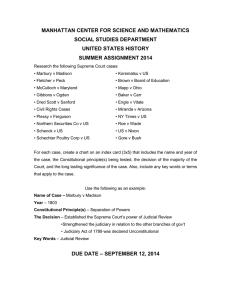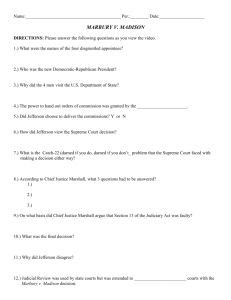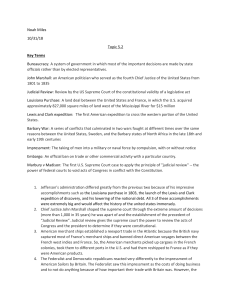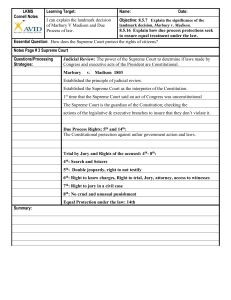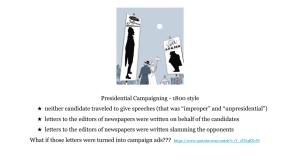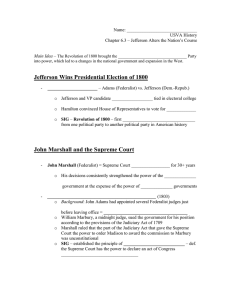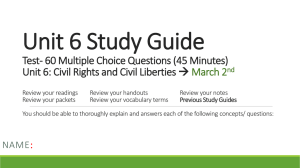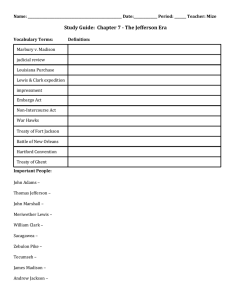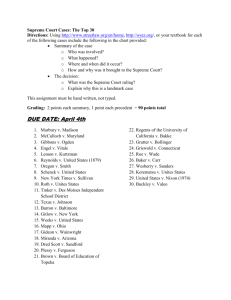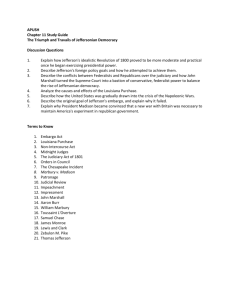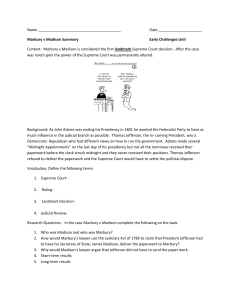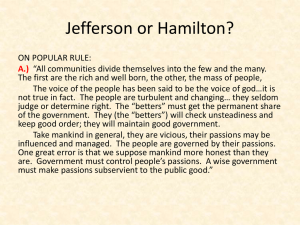Name - Alvin ISD
advertisement
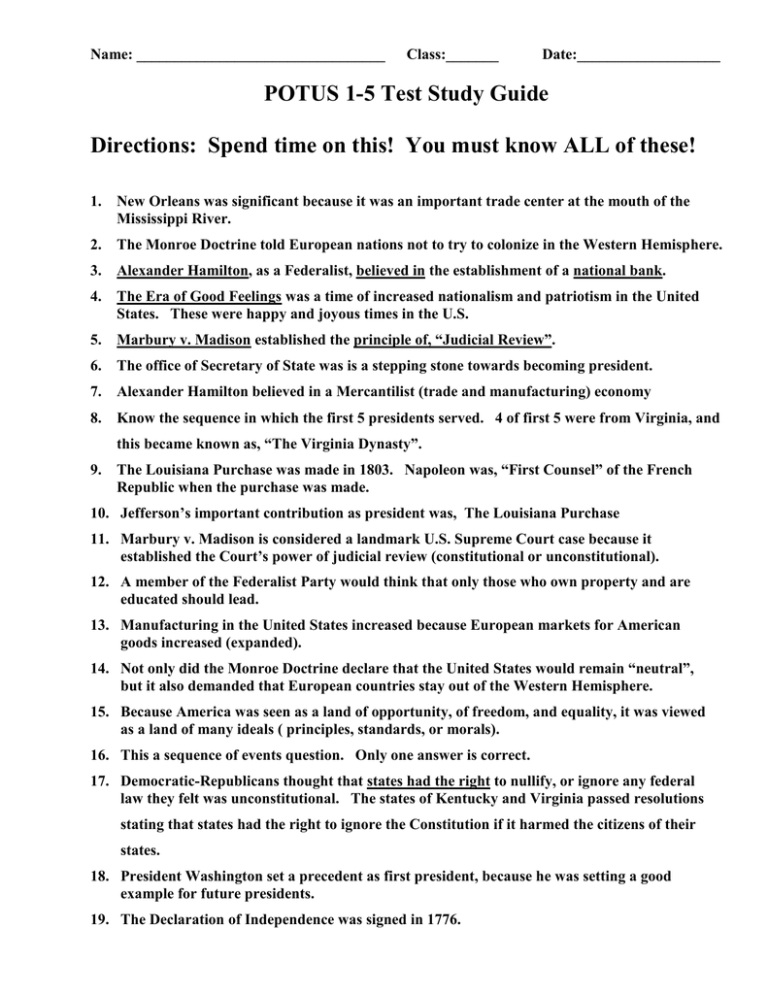
Name: _________________________________ Class:_______ Date:___________________ POTUS 1-5 Test Study Guide Directions: Spend time on this! You must know ALL of these! 1. New Orleans was significant because it was an important trade center at the mouth of the Mississippi River. 2. The Monroe Doctrine told European nations not to try to colonize in the Western Hemisphere. 3. Alexander Hamilton, as a Federalist, believed in the establishment of a national bank. 4. The Era of Good Feelings was a time of increased nationalism and patriotism in the United States. These were happy and joyous times in the U.S. 5. Marbury v. Madison established the principle of, “Judicial Review”. 6. The office of Secretary of State was is a stepping stone towards becoming president. 7. Alexander Hamilton believed in a Mercantilist (trade and manufacturing) economy 8. Know the sequence in which the first 5 presidents served. 4 of first 5 were from Virginia, and this became known as, “The Virginia Dynasty”. 9. The Louisiana Purchase was made in 1803. Napoleon was, “First Counsel” of the French Republic when the purchase was made. 10. Jefferson’s important contribution as president was, The Louisiana Purchase 11. Marbury v. Madison is considered a landmark U.S. Supreme Court case because it established the Court’s power of judicial review (constitutional or unconstitutional). 12. A member of the Federalist Party would think that only those who own property and are educated should lead. 13. Manufacturing in the United States increased because European markets for American goods increased (expanded). 14. Not only did the Monroe Doctrine declare that the United States would remain “neutral”, but it also demanded that European countries stay out of the Western Hemisphere. 15. Because America was seen as a land of opportunity, of freedom, and equality, it was viewed as a land of many ideals ( principles, standards, or morals). 16. This a sequence of events question. Only one answer is correct. 17. Democratic-Republicans thought that states had the right to nullify, or ignore any federal law they felt was unconstitutional. The states of Kentucky and Virginia passed resolutions stating that states had the right to ignore the Constitution if it harmed the citizens of their states. 18. President Washington set a precedent as first president, because he was setting a good example for future presidents. 19. The Declaration of Independence was signed in 1776. 20. In his farewell address, George Washington wanted America to isolate (separate) itself from foreign conflict. 21. The Supreme Court gained its power to review laws ( the principal of judicial review) through the Marbury v. Madison Supreme Court case. 22. The Federal Government gained power to regulate (control / make laws ) interstate commerce (trade between states), through the Gibbons v. Ogden Supreme Court case. 23. The term, “contrary”, means opposite. Jefferson’s buying of Louisiana was contrary to the idea that, “The government is best that governs least.”. 24. Know what the term, “bias view”, means. Know what the term, “objective view”, means. Know these terms when looking at a POLITICAL CARTOON. Be sure you look at all the wording in the cartoon. This helps you figure out if the author has a bias viewpoint, or an objective viewpoint. 25. Remember that the Constitution was written in 1787. 26. Remember that James Madison is the author of the Bill of Rights, and the Father of the Constitution. Whatever is quoted will be in reference to the Bill of Rights. 27. The Judiciary Act of 1789 established the Federal Court and Supreme Court. 28. The Elastic clause ays that Congress can make all laws that are “necessary and proper”. 29. In addition to angering Democratic-Republicans and immigrants, the Alien and Sedition Acts violated the 1st amendment rights of citizens. 30. The Embargo Act of 1803 was a law made by Thomas Jefferson that hurt American merchants. 31. The causes of the War of 1812 were: British messing with trade, British impressing American sailors, British encouragement of Native American uprisings. 32. The War of 1812 had a positive impact on the North because it resulted in the development of American manufacturing.
